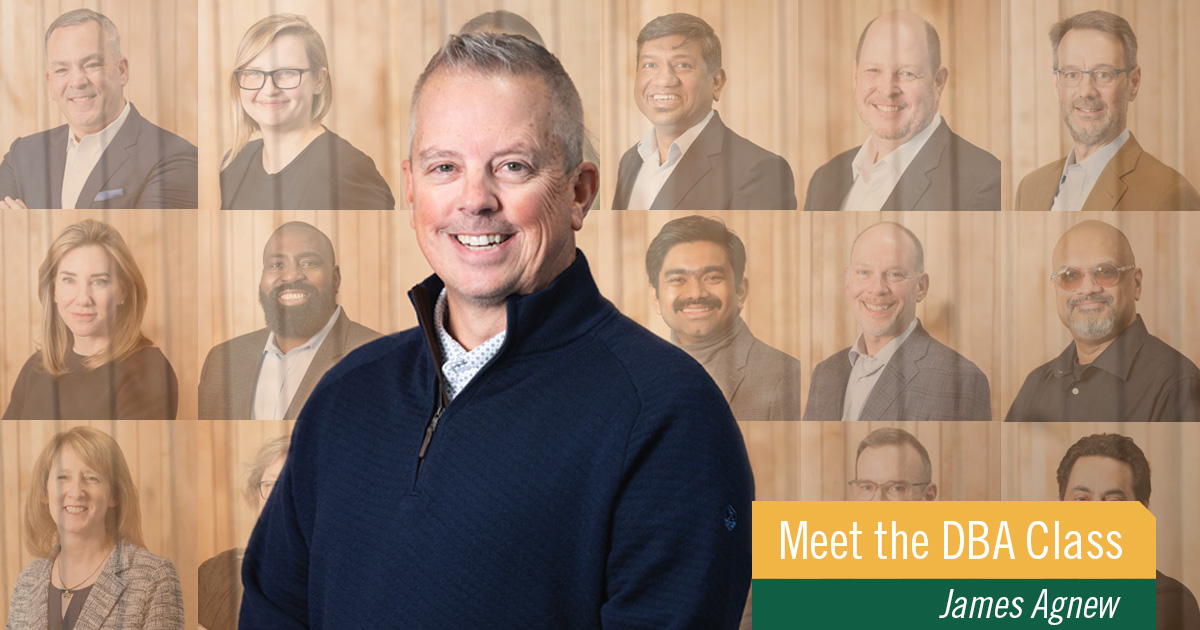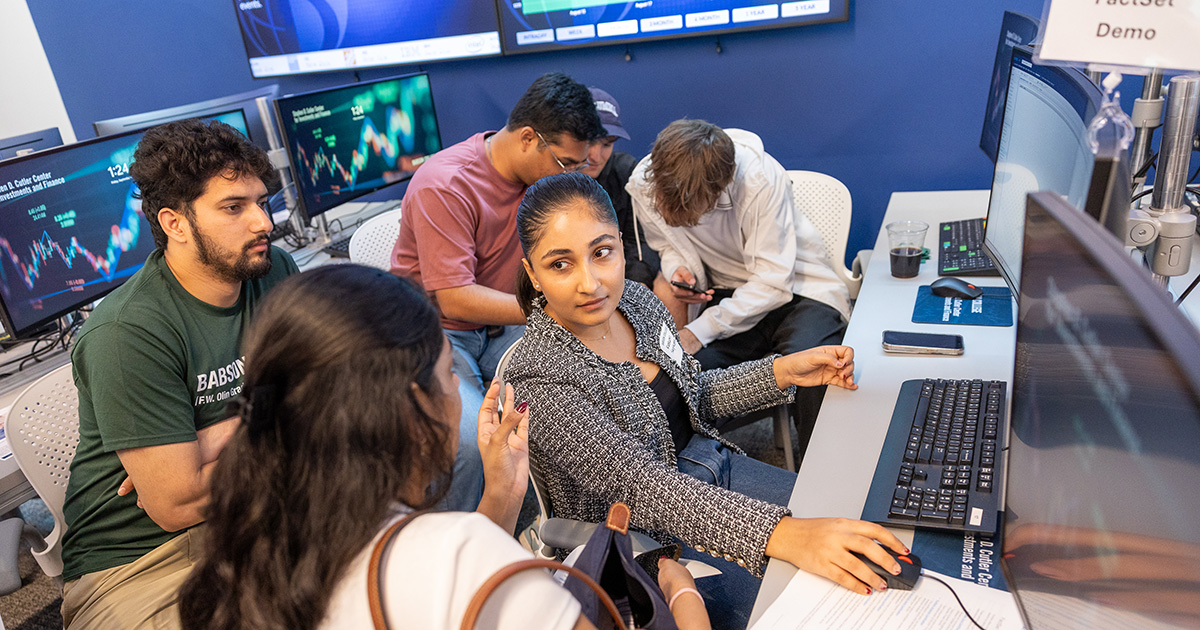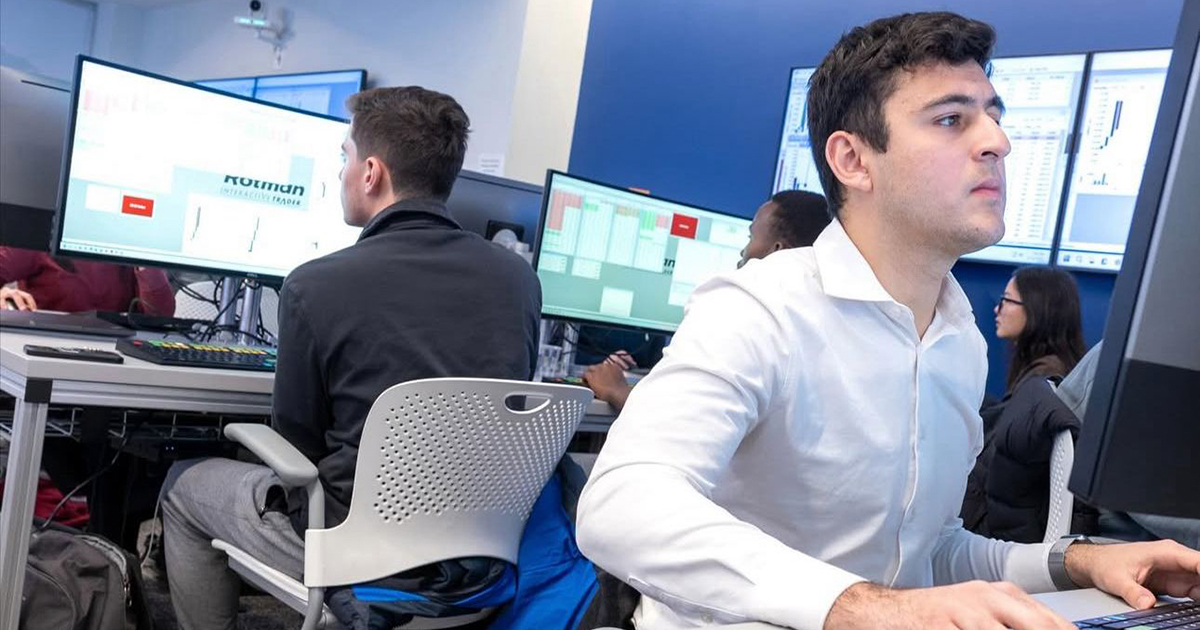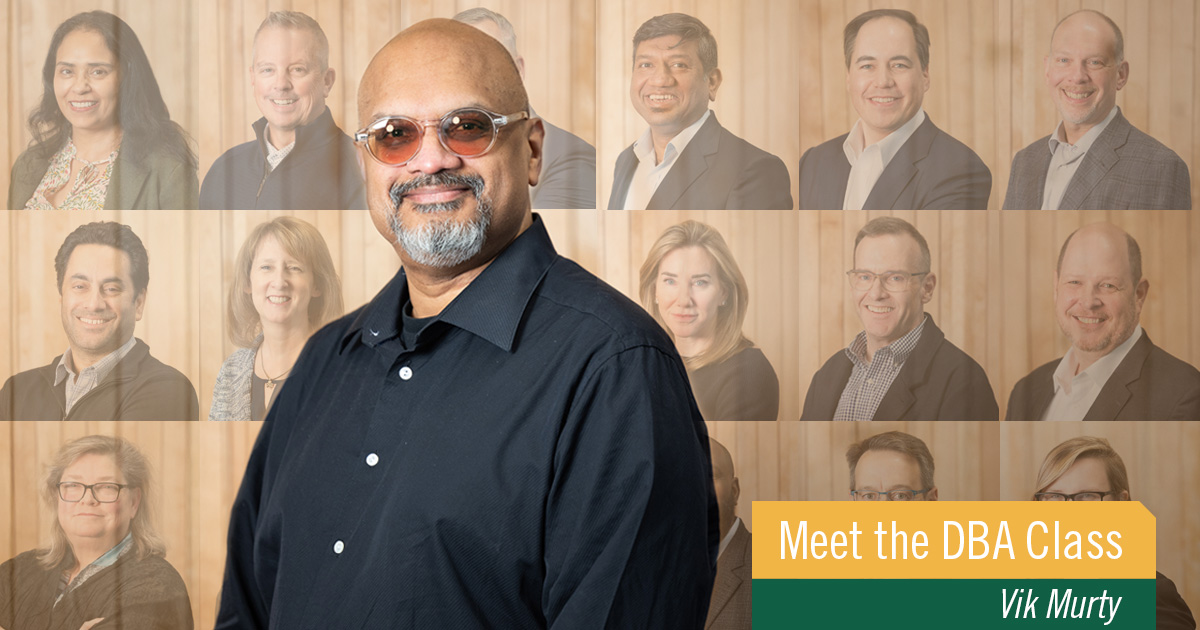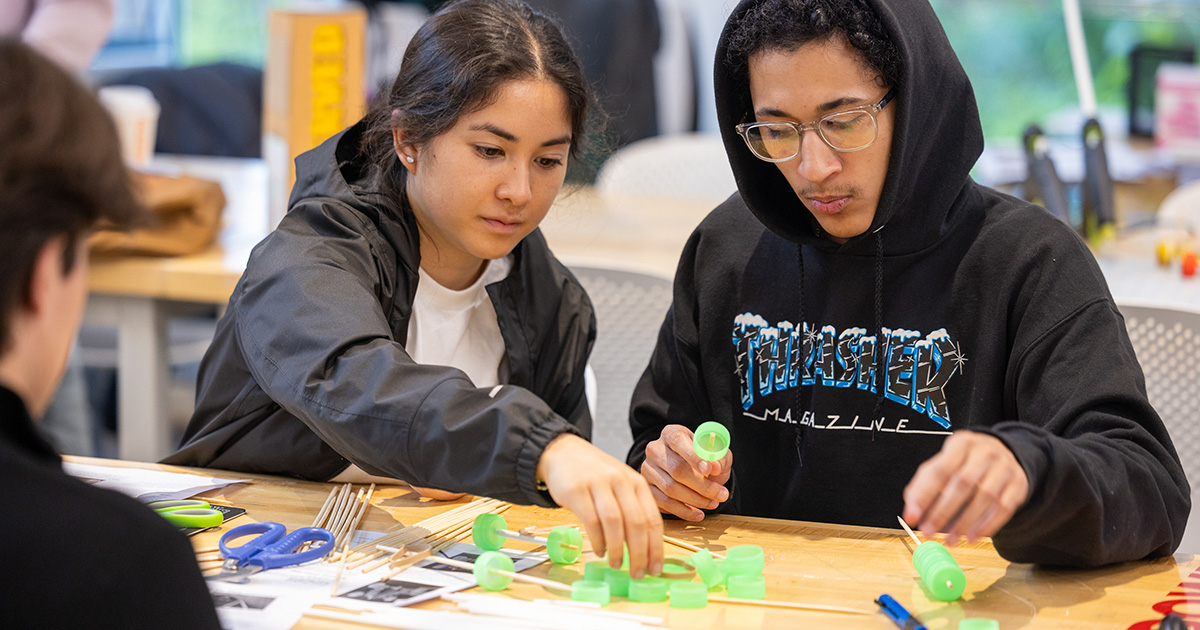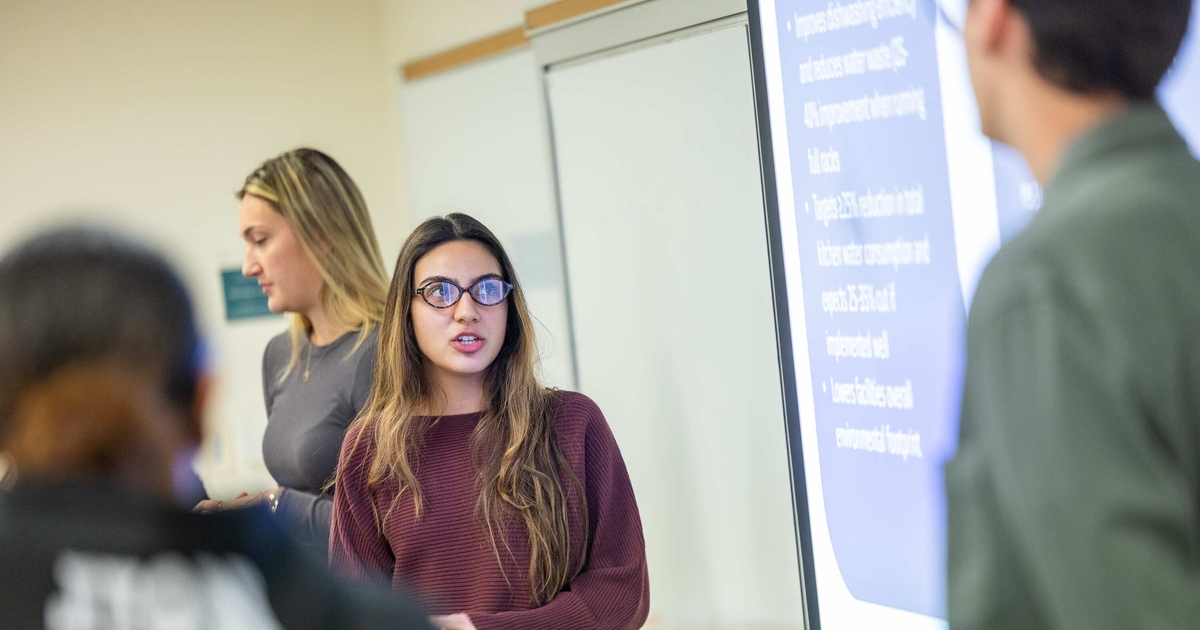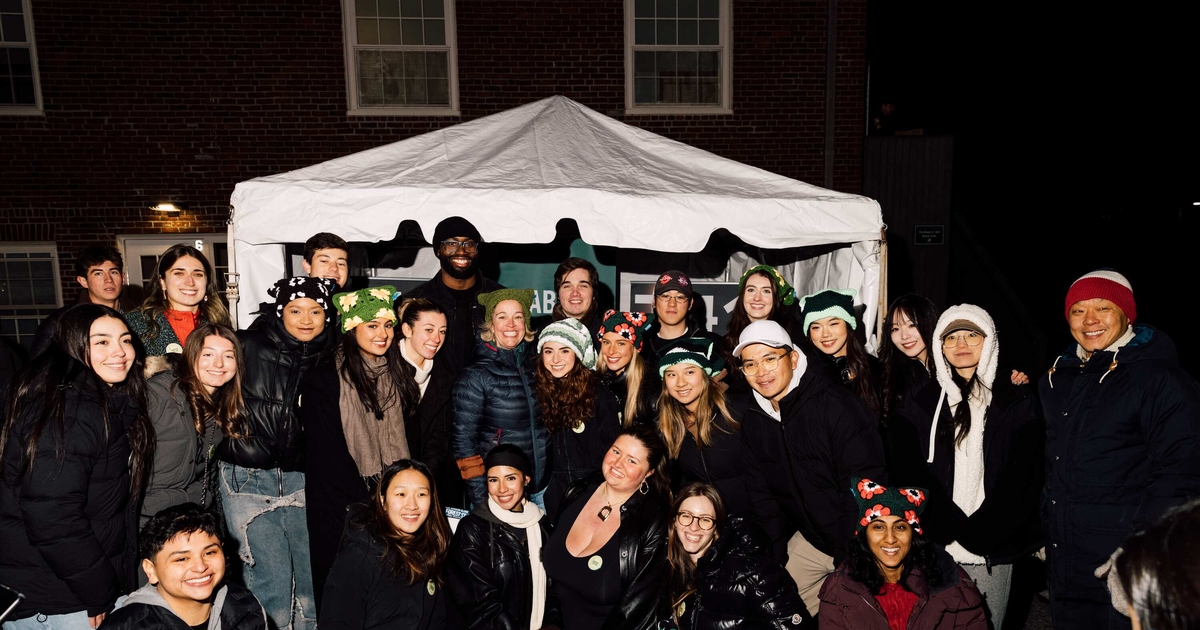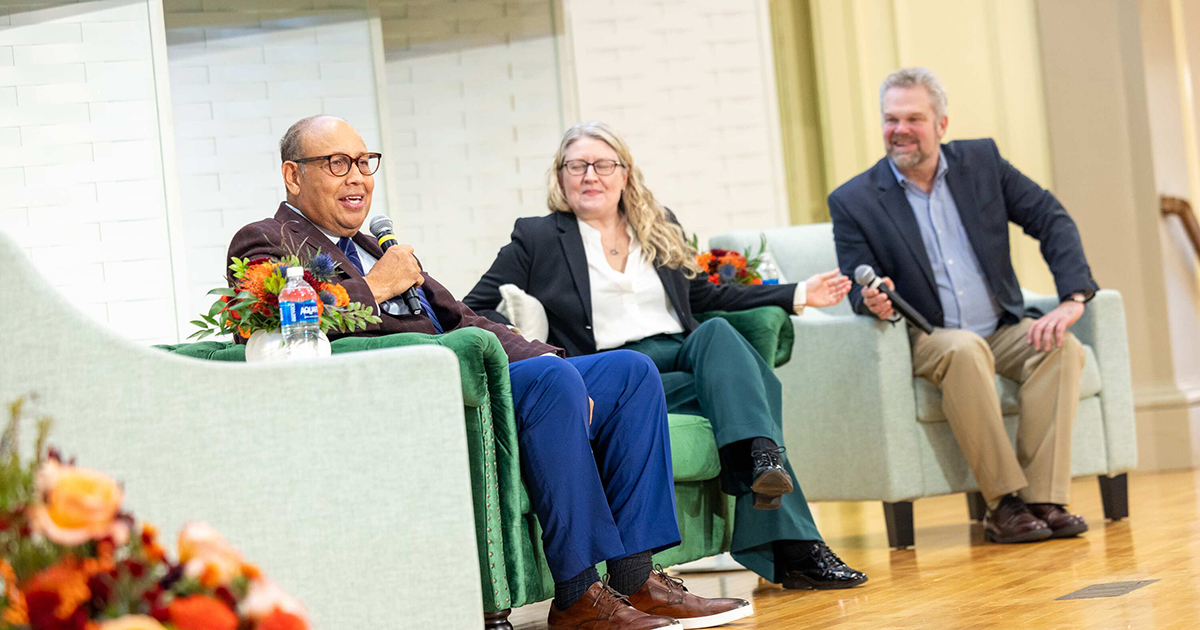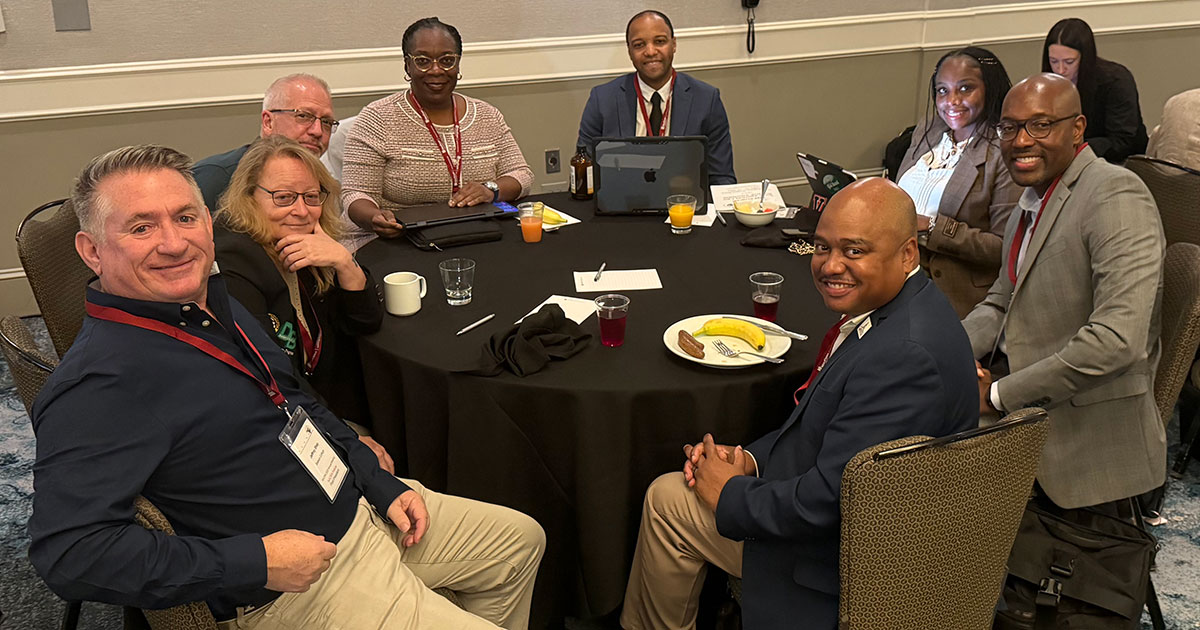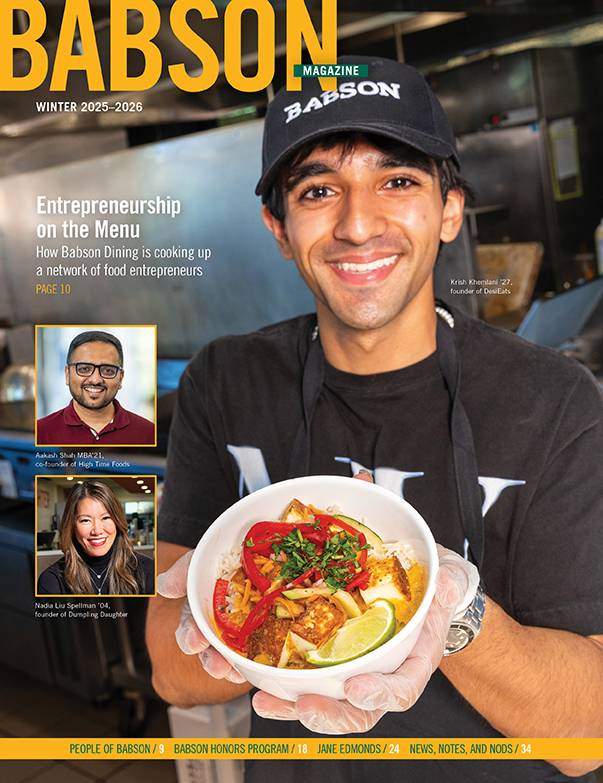Editor's Picks
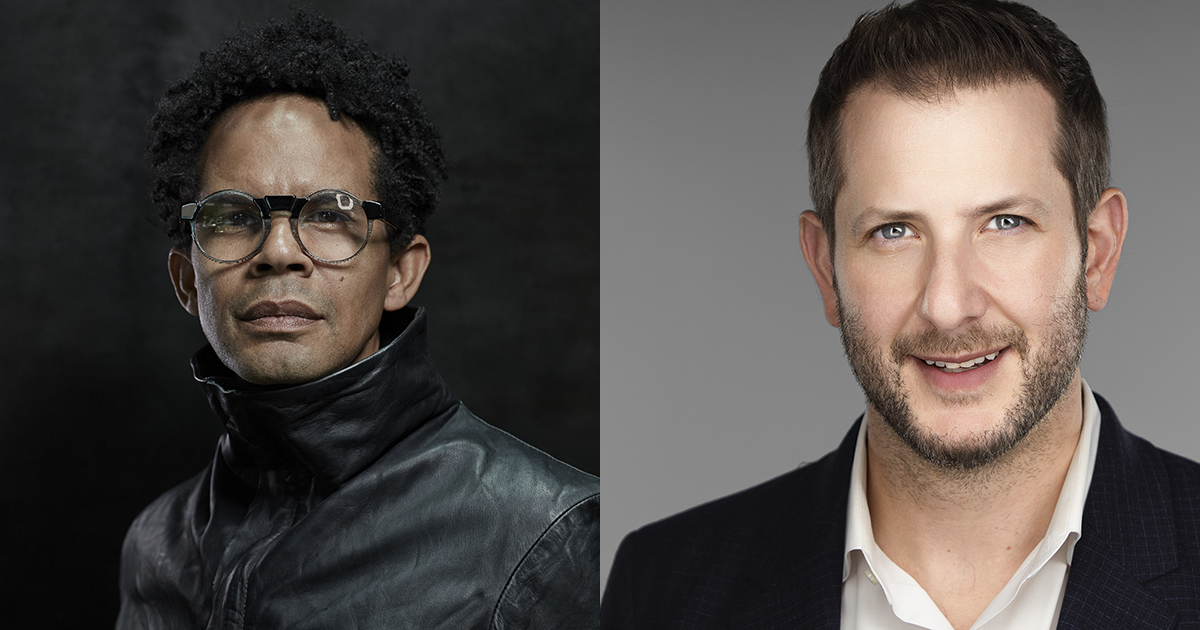
The Babson Effect: Alumni Bonds That Launch Careers—and Bring Them Full Circle
When Aaron Walton ’83—whose first career break came from a Babson alumnus—hired Alex Smith ’08 as his personal business manager in 2024, it was another classic example of Babson’s top-ranked alumni network in action.
December 16, 2025
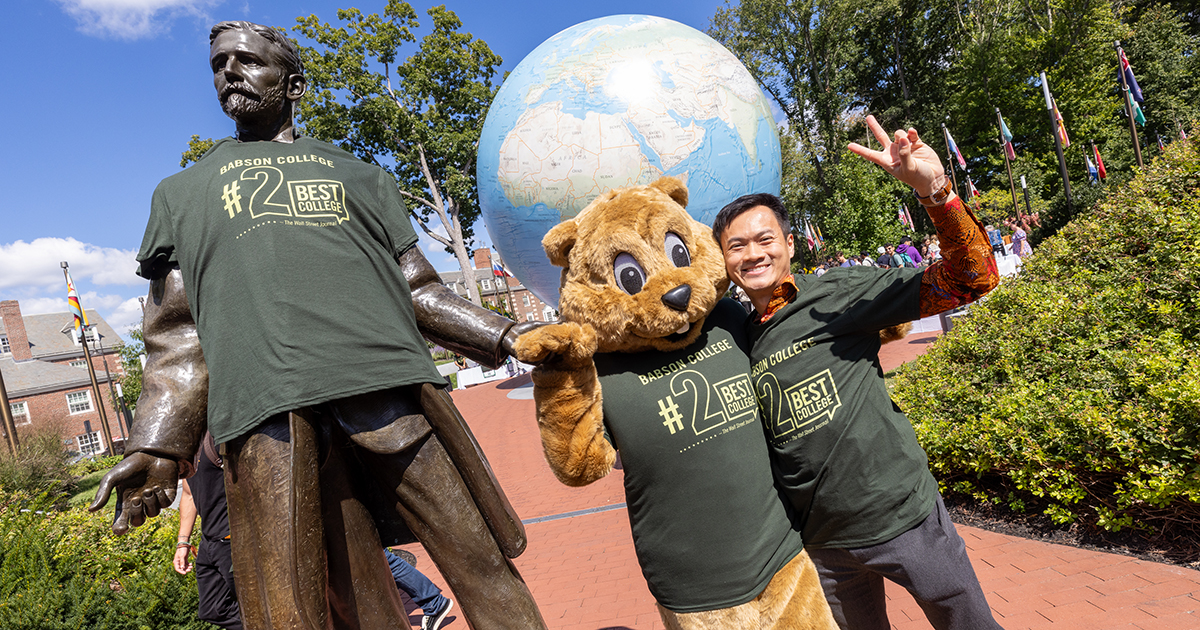
No. 2 Again: Wall Street Journal Ranks Babson the No. 2 Best College for the Second Year in a Row
For the second year in a row, The Wall Street Journal ranked Babson as the No. 2 Best College in the United States, lauding the College for its impressive impact on student outcomes.
September 29, 2025
Posted in Community, Entrepreneurial Leadership, Insights, Outcomes
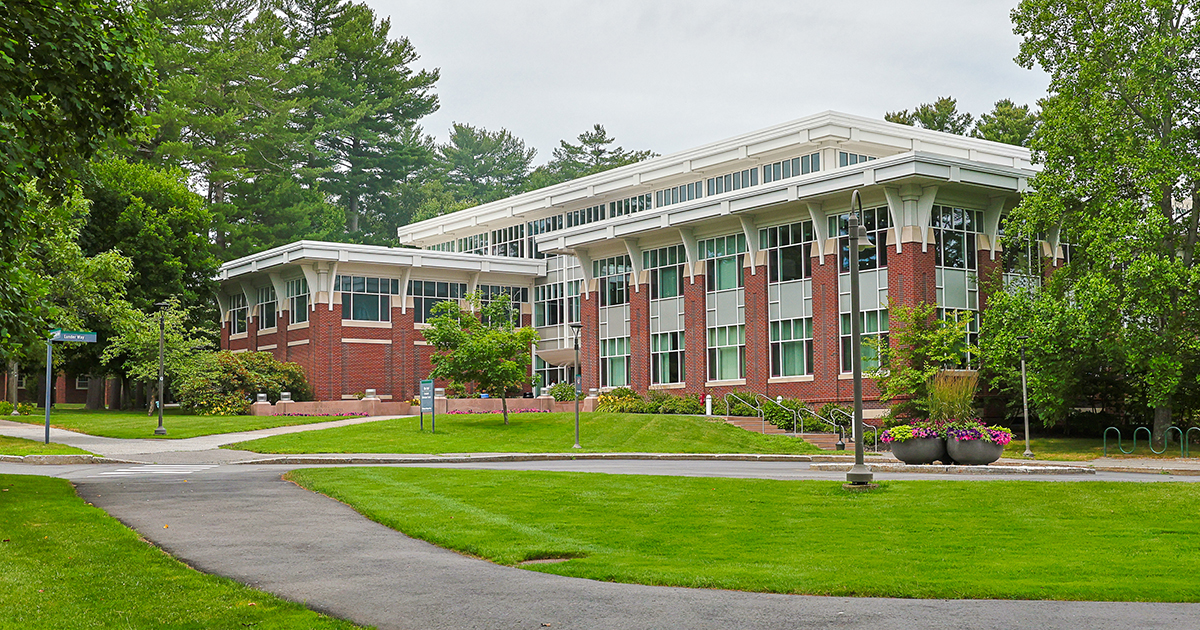
Babson’s New Doctor of Business Administration Program Draws Impressive Interest
Babson’s new Doctor of Business Administration program drives incredible demand, as the first cohort of accomplished executives and leaders—from more than 700 people expressing interest—begins on campus.
August 13, 2025
Posted in Community, Entrepreneurial Leadership

As Workforce Needs Evolve, Babson Expands Its Commitment to Professional and Executive Education
To better support organizations and professionals in rapidly changing times, Babson launches an expanded Professional and Executive Education portfolio, offering courses that are online, flexible, and urgently needed, while investing in a new lodging and conference center on campus.
June 23, 2025
Posted in Community, Entrepreneurial Leadership
Babson Briefs

LISTEN: If The Shoe Doesn't Fit, Build It
Jolie Wyatt ’26 is on a mission to change footwear for millions of women. In this episode of Babson’s podcast, “From Problems to Possibilities: Entrepreneurial Leadership in Action,” she shares how she transformed a personal frustration into a scalable business.
February 24, 2026
Posted in Babson Briefs
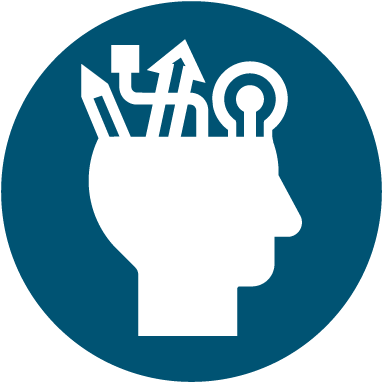
Babson Expands Professional & Executive Education Portfolio with AI & Innovation Certificate with Founderz
The new Babson On-Demand™ suite of credentials for working professionals and executives blends entrepreneurial thinking with real-world, applied AI solutions for today’s rapidly evolving workplace.
February 12, 2026
Posted in Babson Briefs
Trending Stories
In the Media
Family Business Magazine
The Chronicle of Higher Education
The Wall Street Journal
